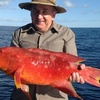
Citizens science: using the power of the masses
Everyday Australians are at the forefront of discovery, thanks to a variety of inspiring, home-grown science projects. Read more at Australian Geographic.



Everyday Australians are at the forefront of discovery, thanks to a variety of inspiring, home-grown science projects. Read more at Australian Geographic.
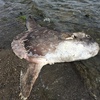
Scientists and fishermen have reported more unusual species in Alaska waters, likely because of warming sea surface temperatures. Meanwhile, an Alaska research organization has created an online clearinghouse of all the news and research related to the anomaly called The Blob. Read more at Alaskan Public Media.

The Women Divers Hall of Fame™ honours and raises awareness of the contributions of outstanding women divers. WDHOF provides educational, mentorship, financial, and career opportunities to the diving community throughout the world. Scholarships are now being offered in dive medicine, marine conservation, marine biology, underwater archaeology, marine education, journalism, graphic arts, or photography. Training grants provide funding for diver and related underwater training and, for some awards, scuba equipment. Applications …
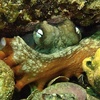
Climate change is bad news for many species. Environments are changing more rapidly than plants and animals can adapt to—or move out of—them. Octopuses, however, reproduce so quickly (and multitudinously) and have such short generation times, they are generally well primed to adapt and move. The common Sydney octopus (Octopus tetricus), for one, is expanding its range poleward as the surrounding oceans warm. But could a shift south actually eventually limit this …
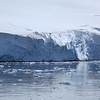
EXPERTS fear an ice sheet the size of Queensland is melting so quickly it will cause massive storm surges capable of decimating Australia’s coastal cities within the next century. Satellite images recently captured by NASA show large sections of Greenland and Antarctica are vanishing at a much faster rate than previously thought. Read more at news.com.au
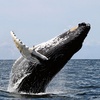
AUSTRALIA’S humpback whale (Megaptera novaeangliae) populations have recovered to the point where scientists are recommending the mammal be removed from the threatened species list. Murdoch University Professor Lars Bejder says Australia’s two humpback whale populations have made an amazing recovery over the past 45 years. Read the full story in Science Network WA.
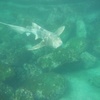
Sharks found in shallow, tropical waters around northern Australia are well placed to cope with climate change according to Queensland researchers. Read more about how sharks may thrive in a changing ocean in ABC News.
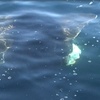
Although within the known distribution for this species, observations of Basking Sharks in the wild are quite rare...
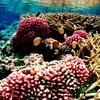
There are still fears that warming sea temperatures may damage the Great Barrier Reef, but there's better news when it comes to acidification.
Scientists using specialist technology in Australia believe they've established that increasing levels of acid in the ocean will not speed up coral bleaching. Read more at ABC Radio's PM.
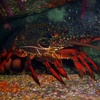
Lobster populations rise and fall for many reasons. But in its new report, the commission singled out one factor that is probably driving the recent changes: The ocean is getting warmer. Read the full story in The New York Times.